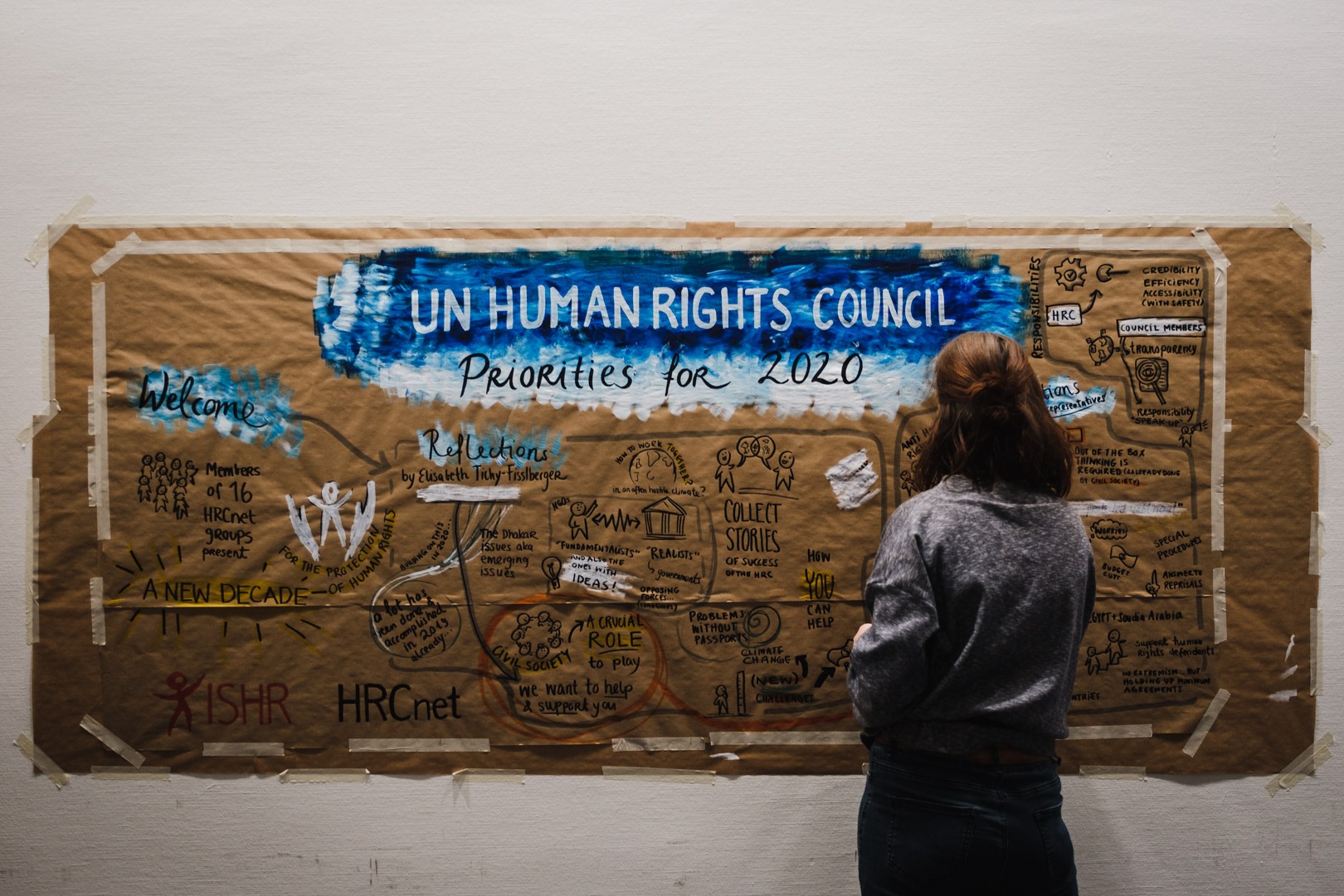HRCnet was established in 2006 to enhance NGO engagement with the Human Rights Council and to strengthen the Council’s impact and influence on the ground. Since then, HRCnet members working in coordination and solidarity have contributed significantly to some of the most important initiatives and outputs of the Human Rights Council and its mechanisms.
HRCnet goals
HRCnet members have substantially shaped debates and made influential policy proposals on country situations, as well as thematic and institutional issues. HRCnet works to:
-
Safeguard civil society space locally and at the international level: by securing strategic action by key actors toward the protection of human rights defenders and safeguarding civil society participation at the UN.
-
Enhance access to international human rights mechanisms: by providing information and assisting rights holders in engaging with the international human rights system, strengthening the capacity to influence States, and harnessing the experience and capabilities of civil society from all regions.
-
Amplify impact: by facilitating coordination and collaboration between international and regional NGOs.
-
Promote accountability: by seeking the establishment of international human rights mechanisms to investigate and promote accountability for gross human rights violations.
-
Enhance scrutiny: by bringing human rights violations to the attention of the international community and pushing for the establishment of expert mandates to monitor and document such violations.
-
Strengthen protection: by bringing rights holders to the centre of international decision-making processes and demanding timely and effective responses from the Human Rights Council and its mechanisms.

